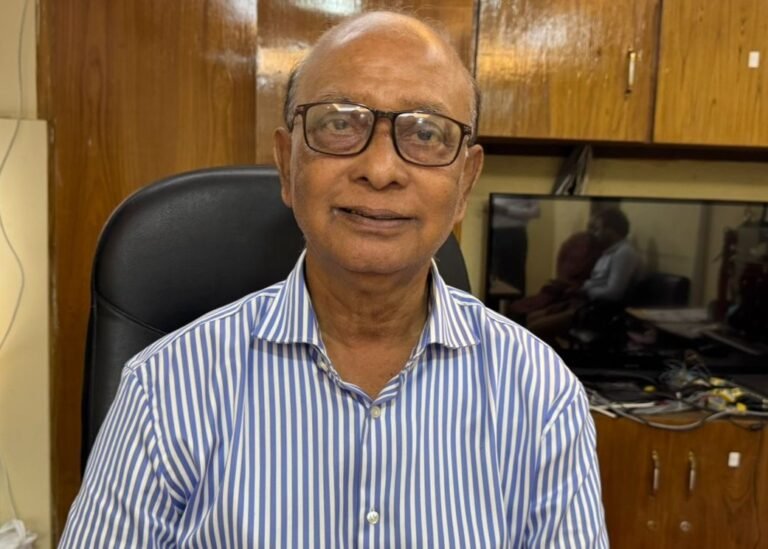Zahidul Karim Kachi, Member Secretary of Chattogram Press Club, as well as the Resident Editor of Daily Amar Desh, described the July 2024 uprising as a “historic revolution” that defeated fascism and restored freedom to the people of Bangladesh.
In a passionate interview with the Daily People’s View he commemorating the first anniversary of the July Revolution, Kachi extended heartfelt greetings to all who participated in the movement, particularly those who struggled under repression and stood up against authoritarian rule.
“Salute to everyone who took part in the July uprising. I offer my deep respect to those who fought in the movement. Let no one ever again dare to establish oppression in this country,” Kachi said.
Reflecting on the days of the uprising, Kachi recalled working closely with other professionals such as Engineer Selim, Rotarian Jasim, and Azad to mobilize the public. “We were going through a difficult time. We strategized on how to involve people in the movement and keep the resistance alive,” he noted.
Kachi emphasized that July 5, 2024, the day the Hasina regime fell, marked the people’s reclaiming of their lost freedoms. “It is a day of immense joy. One year later, those memories return to us with the realization that we are speaking freely again.”
According to Kachi, the uprising drew strength from students, politically oppressed individuals, and those who had faced forced disappearances or politically motivated charges over the last 17 years. He traced the movement’s roots to the student-led quota reform protests, which gained momentum when then-Prime Minister Sheikh Hasina labeled all dissenters as “razakars.”
“That one statement infuriated the nation. Especially the university students, who were the first to pour into the streets. That moment marked the visible beginning of the revolution,” Kachi said.
In Chattogram, major protest zones included Muradpur, Sholoshahar Railway Station, 2 No Gate, New Market, Anderkilla, and Agrabad. “The epicenters were Muradpur and New Market, where ruling party militants opened fire. That only fueled public outrage further,” he recalled.
One particularly tense moment occurred on August 3 at Anderkilla Jame Mosque. Kachi remembered being blocked by police while attempting to attend Friday prayers. “We couldn’t pray. We ended up chanting against the regime instead. When prayers ended, we rushed upstairs, and soon protests exploded throughout Anderkilla. Just two days later, on August 5, Hasina’s government fell.”
Kachi, who also participated in the 1969 mass uprising and the 1971 Liberation War, compared the July 2024 uprising to those earlier historic moments.
“I’ve seen the Liberation War. I was jailed, released, and went back to fight. But what happened in 2024 is unique. In 1971, the victory came with foreign soldiers looting fridges and TVs. But on August 5, 2024, families themselves took to the streets. It was extraordinary.”
He expressed confidence that Bangladesh will not need another uprising like this again. “Fascism has been completely defeated. The people have uprooted it. Had it lasted a few more minutes, there would’ve been no trace left of Hasina.”
Kachi concluded by noting the sense of fulfillment and triumph that now defines the nation. “The joy, emotion, and victory people feel today, they’ve received it all.”



